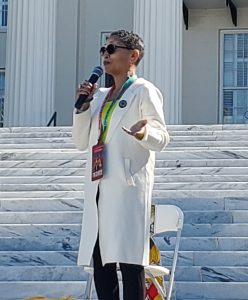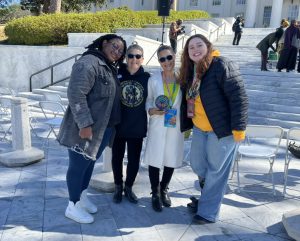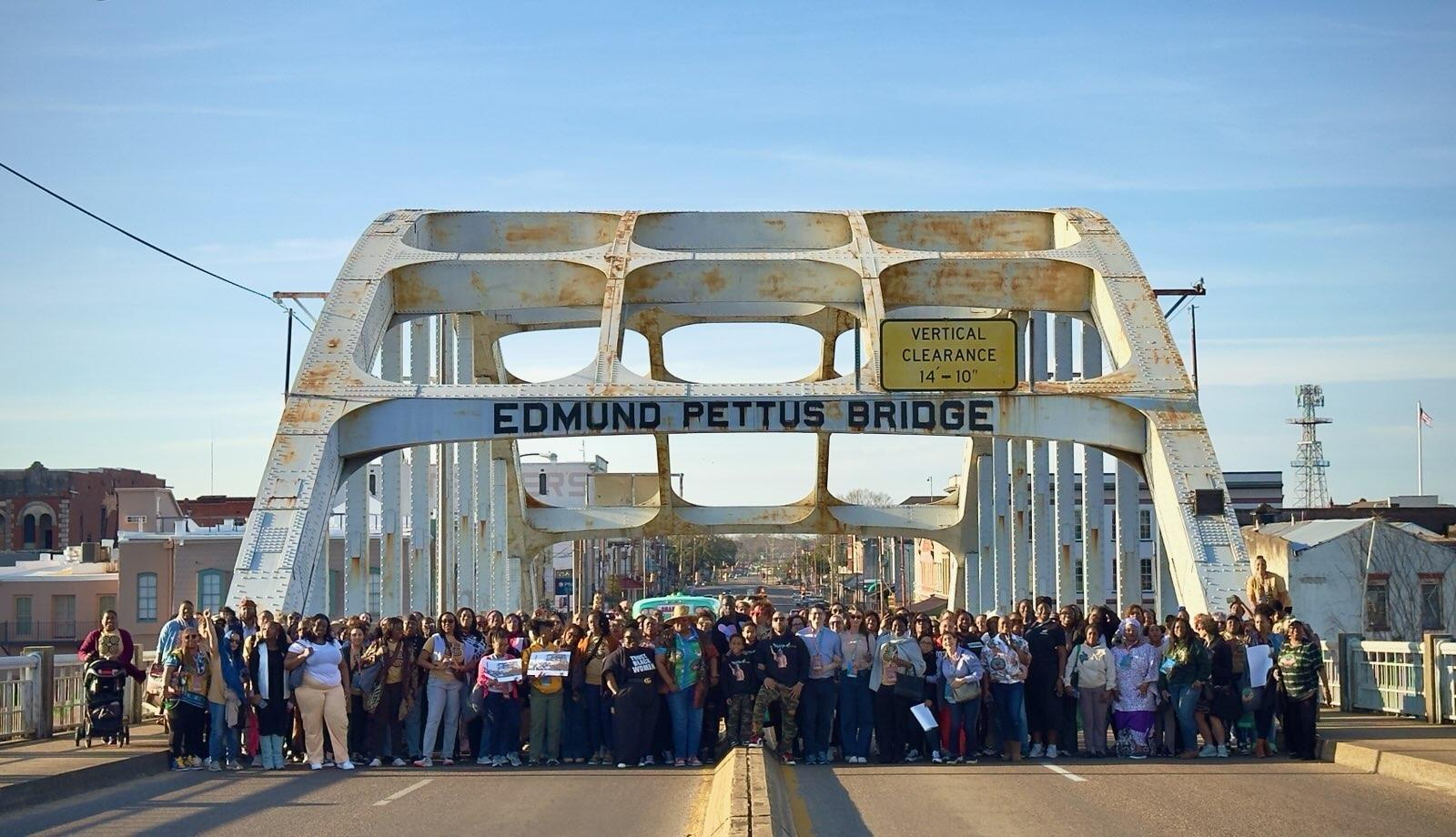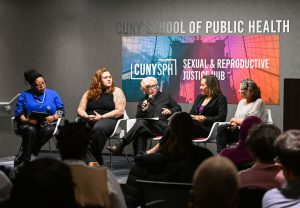CUNY SPH Associate Dean for Student Affairs & Alumni Relations Dr. Lynn Roberts, Adjunct Associate Professor Dr. Deborah Kaplan, and master’s students Ambrosia Beckford and Isabella Villa Real Seabra attended the Anarcha, Lucy, Betsey Day of Reckoning Conference in Montogomery and Selma, Alabama, from February 27 to March 2. Initiated by artist and activist Michelle Browder, the four-day gathering brought together scholars, activists, healthcare professionals, and community members to honor the legacy of Black midwifery and confront the ongoing Black maternal health crisis.
Timed to coincide with the 60th anniversary of the historic “Bloody Sunday” march from Montgomery to Selma, the four-day gathering honored the city’s enduring legacy of civil rights activism while while highlighting the intersections of racial justice and reproductive health.

Dr. Roberts contributed to the conference in multiple roles. On opening day, she participated in a featured panel titled “Bridging the Gap: Reclaiming Black Midwifery for Health Equity and Reproductive Justice,” in conversation with Dr. Nikia Grayson of CHOICES. Representing her role as an Emeritus Board Member of SisterSong, Dr. Roberts provided an overview of the reproductive justice framework and movement, including the historical context and forward-looking strategies for reclaiming Black midwifery traditions as a pathway to justice and equity. She also spoke at the conference’s powerful closing ceremony held on the steps of the Alabama State Capitol, where Browder and other speakers called for the removal of the J. Marion Sims statue.

Throughout the conference, attendees examined the legacy of midwifery and maternal healthcare under Jim Crow, honoring the resistance and innovation of Black women who challenged racist systems. A highlight of the event was a symbolic march across the Edmund Pettus Bridge, where participants carried signs advocating for equitable maternal health, reproductive justice, and bodily autonomy—linking the fight for voting rights to today’s reproductive justice movement.




